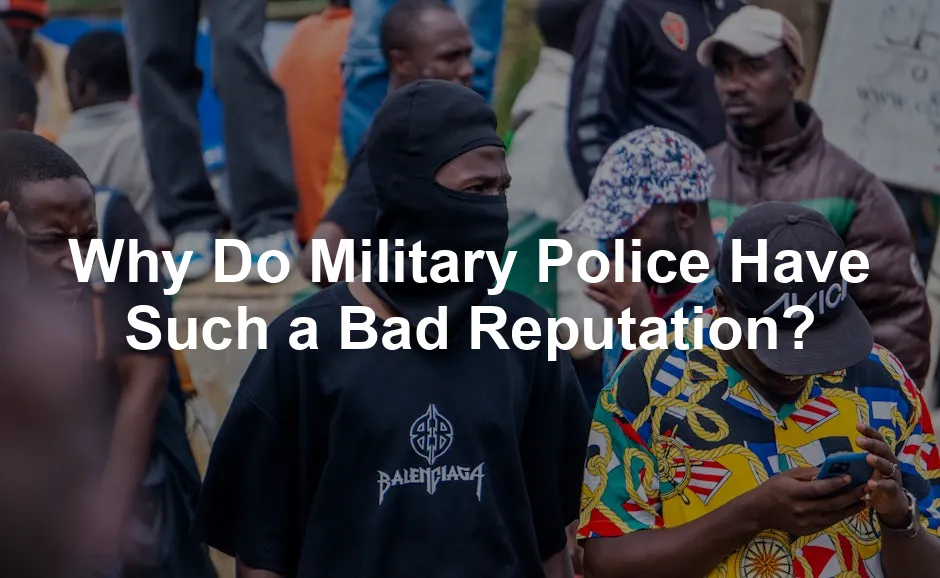
Why Do Military Police Have Such a Bad Reputation?
Introduction
Military police (MPs) play a vital role in maintaining discipline and order. They ensure the safety of personnel on bases and during operations. Despite their critical function, military police often face a negative public perception. This article aims to uncover the reasons behind the poor reputation of military police.
For those interested in delving deeper into the fascinating history of military police, consider checking out Military Police: A History of Service and Sacrifice. This book offers insights into the sacrifices made by military police throughout history, which is essential reading for anyone interested in military history.
Summary and Overview
The reputation of military police stems from various factors, both historical and cultural. Key points of discussion include the historical context of military law enforcement, such as the Vietnam War, which shaped perceptions of MPs. Cultural aspects, like the portrayal of MPs in media, contribute to the negative image. Additionally, operational challenges faced by military police can lead to misunderstandings and resentment among service members. Public opinion plays a significant role in this perception, influenced by media portrayals that often exaggerate negative traits. By examining these elements, we can better understand the complexities behind the reputation of military police.
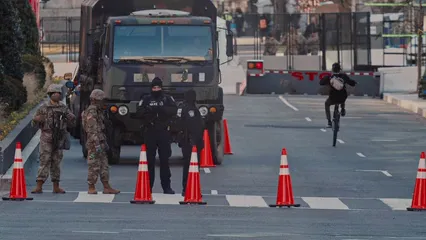
If you’re a history buff, don’t miss out on The Vietnam War: A History. This book gives a comprehensive overview of a pivotal moment in military history, shedding light on the complexities faced by military police during that era.
The Role of Military Police: Balancing Authority and Service
Understanding Military Police Responsibilities
Military police hold a dual role within the military community. They enforce military law while also serving their fellow service members. Here are some key responsibilities:
- Enforcement of military law and regulations.
- Interactions with both military personnel and civilians.
- Investigative responsibilities for serious crimes.
MPs are tasked with ensuring security on military installations, conducting investigations, and responding to incidents. Their unique position often requires them to balance law enforcement duties with camaraderie, leading to complex relationships within the military. This balancing act is crucial for maintaining order and trust among service members.

Speaking of balance, check out this Tactical Flashlight that could be a handy tool for military police during night operations. With its reliable brightness and durability, it’s a must-have for anyone in law enforcement.
The Challenges of Authority
Military police (MPs) face unique hurdles in their roles. Their strict enforcement of discipline can create tensions with fellow service members. When MPs act as enforcers, they often become targets of resentment. Many soldiers perceive them as heavy-handed, especially when rules feel overly strict or unfair.
This dynamic can lead to a significant emotional impact on service members. The feeling of being constantly monitored can foster distrust. Instead of viewing MPs as protectors, some see them as adversaries. This perception complicates the relationship between MPs and the military community, affecting morale and cooperation.
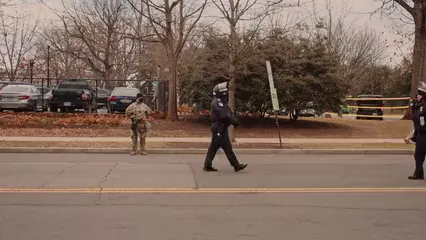
Finding the right balance between authority and approachability remains a critical challenge for military police.
Historical Events Shaping Perception
The reputation of military police has deep historical roots. Events like the Vietnam War left a lasting mark on their image. During this conflict, MPs enforced strict military discipline under challenging conditions. Their role often involved managing dissent among troops, which was not well-received.
Moreover, MPs had to uphold unpopular military policies. For many, this made them symbols of an unwanted authority, leading to resentment from fellow soldiers. The long-term effects of these historical events continue to shape how people view military police today. Veterans often carry these experiences, influencing how they interact with MPs in the future.

Cultural portrayals in media further complicate this perception. Often depicted as rigid enforcers, MPs are rarely shown in a positive light. These narratives reinforce stereotypes, making it difficult for them to shake off their negative reputation. The combination of historical and cultural influences creates a complex landscape for military police and their public image.
Media Influence on Public Perception
Media plays a significant role in shaping how we view military police (MPs). Often, the portrayals in films and television create lasting stereotypes. These narratives can lead to misconceptions about the true nature of their work.
Consider these points:
- In many movies, military police are depicted as ruthless enforcers, focusing solely on punishment. This creates a one-dimensional view that fails to capture their multifaceted roles.
- Shows often exaggerate conflicts between MPs and soldiers, leading to a belief that these interactions are more contentious than they are.
- The disconnect between these dramatized stories and real-life experiences is stark. Most MPs work diligently to maintain order and support their comrades.
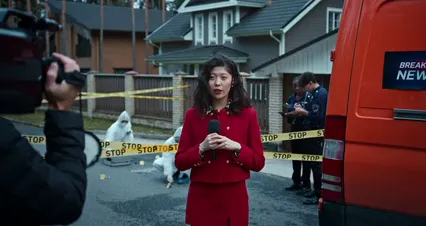
Accurate representations matter. When media adds depth to these characters, it promotes understanding. Positive portrayals can help bridge the gap between perception and reality, fostering trust. By highlighting the complexities of their duties, we can reshape the narrative surrounding military police.
The Complexity of Their Role: Challenges Faced by Military Police
Military police operate in high-stress environments that demand quick decision-making. This intense pressure can lead to scrutiny from both superiors and peers.
Here are some challenges they face:
- The nature of military life is often chaotic. MPs must respond to emergencies while enforcing rules, which can lead to difficult choices.
- Scrutiny from fellow soldiers can create tension. When actions are closely monitored, it heightens the stress of performing their duties.
- Balancing enforcement with rapport-building is crucial. MPs must maintain authority without alienating those they serve.
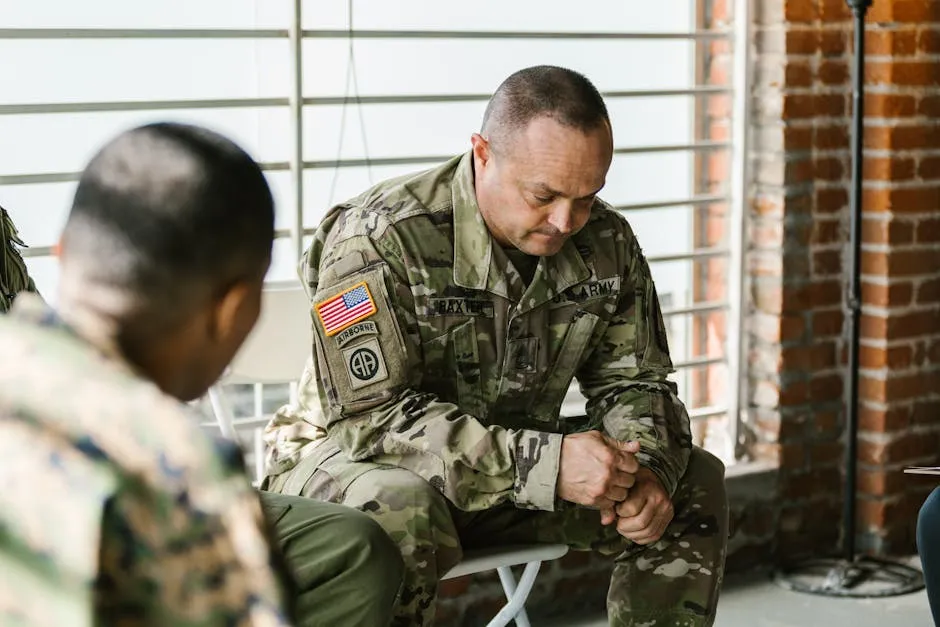
These factors complicate their roles. Understanding these challenges can foster empathy and improve perceptions of military police.
Investigations and Public Perception
Military police (MPs) often handle sensitive investigations. This can create tension with those involved. Soldiers under investigation may react defensively. They might view MPs as adversaries rather than allies. Here are some challenges faced during these investigations:
- MPs investigate serious crimes, including sexual assault and drug offenses.
- Soldiers often feel targeted or betrayed during these inquiries.
- The perception of MPs can shift to that of enforcers rather than protectors.
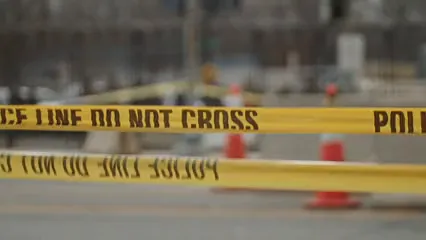
These dynamics complicate the relationship between military police and service members. The nature of their work can lead to misunderstandings and resentment, fueling the negative reputation of military police.
For those who want to be prepared for any situation, consider investing in a Survival Gear Emergency Survival Kit. Whether it’s for a camping trip or just to have on hand, being prepared can make all the difference.
Improving Perception: Building Trust Within the Military Community
Steps Toward Transparency and Accountability
To enhance their image, military police are embracing transparency and accountability. Initiatives aim to bridge the gap between MPs and service members. Here’s how they’re working to improve perceptions:
- Transparency in operations fosters trust and understanding.
- Training programs focus on de-escalation and cultural sensitivity.
- Building rapport with service members encourages open dialogue.
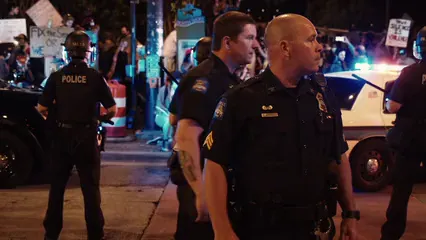
These steps are crucial for reshaping how military police are viewed within the community. By prioritizing empathy and communication, they work to create a more supportive environment for all.
And for those looking to enhance their outdoor experience, a First Aid Kit for Military and Outdoor Use is essential. You never know when you’ll need to patch up a buddy or yourself during an adventure!
Community Engagement Initiatives
Military police (MPs) are taking important steps to improve their image within the military community. Programs focused on community policing aim to enhance communication between MPs and service members. These initiatives foster a sense of trust and understanding.
- Initiatives for community policing on military bases help create a supportive atmosphere.
- Open dialogue about the roles and challenges of MPs is essential to reduce misunderstandings.
- Improved communication can lead to better relationships and a more positive perception of military police.
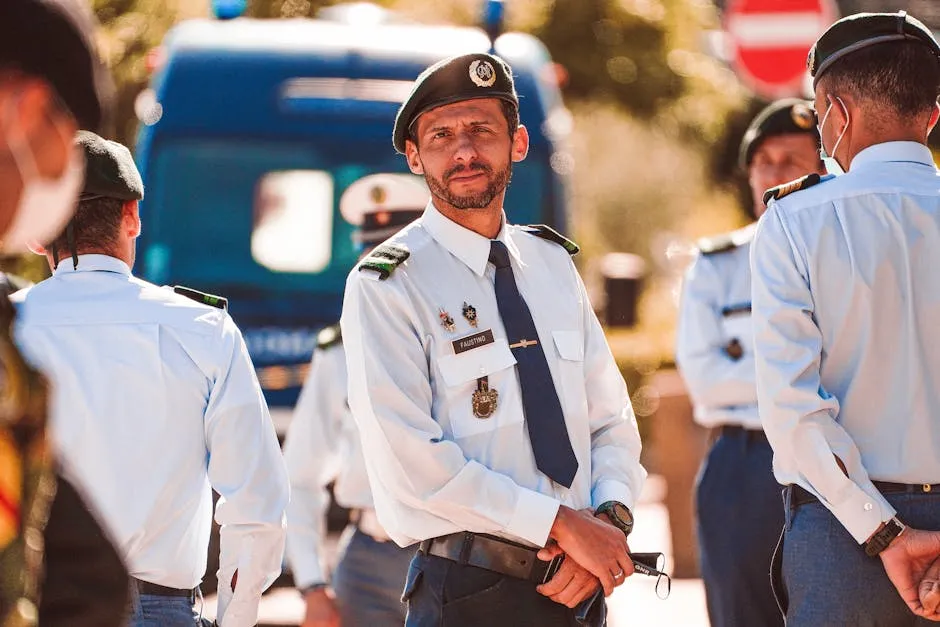
By actively engaging with service members, military police can break down barriers. This proactive approach not only builds trust but also promotes a culture of cooperation within the military community. When soldiers see MPs as allies rather than enforcers, everyone’s safety and morale improve significantly.
Key Takeaways
Military police face a challenging reputation shaped by historical events, cultural influences, and operational realities. Their role in enforcing military law often leads to resentment among service members, particularly due to the strict discipline they uphold. Events like the Vietnam War have left lasting impressions, further complicating perceptions.
Negative portrayals in media reinforce stereotypes that portray MPs as rigid enforcers. However, understanding the complexities of their duties is crucial. Efforts aimed at enhancing transparency, accountability, and communication can reshape both internal and public perceptions. By recognizing the importance of their role, we can foster a more supportive environment for military police and the service members they protect.
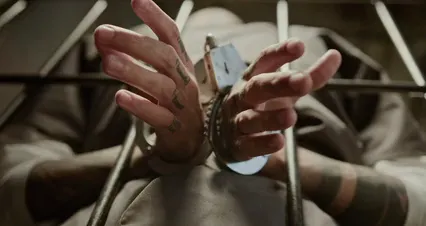
For those who appreciate a good read, The Complete Guide to Military Police Investigations is a fantastic resource that dives into the intricacies of investigations handled by military police.
FAQs
What are the main duties of military police?
Military police are responsible for enforcing military law, conducting investigations, maintaining order, and protecting military personnel and property on bases.
How do MPs differ from civilian police?
MPs operate under military law and regulations, focusing on the unique needs of military personnel, while civilian police enforce local, state, and federal laws in civilian contexts.
Why do some soldiers dislike military police?
Soldiers may see MPs as overly strict, viewing them as an extension of military bureaucracy, especially when enforcing unpopular rules or policies.
Has the reputation of MPs changed over time?
Historically, negative perceptions have persisted, but ongoing reforms and improved training aim to enhance their image and effectiveness in the military community.
Do MPs only work on military bases?
No, military police may operate in combat zones and civilian areas, depending on their duties and the needs of military operations.
Conclusion
Military police play a critical role in maintaining order and security within the armed forces. Their reputation is influenced by numerous factors, including historical events and cultural portrayals. Understanding the complexities of their roles is vital. Ongoing reforms focused on transparency, communication, and accountability are crucial for improving perceptions. By recognizing the positive contributions of military police, we can support their efforts to serve and protect all members of the military community. Share your thoughts on military police perceptions in the comments below and follow our blog for more insights!
It’s important to explore why military police have such a negative reputation. why do military police have such bad rep
Please let us know what you think about our content by leaving a comment down below!
Thank you for reading till here 🙂
And if you’re looking for practical gear, a Multi-tool Pocket Knife with Pouch is a must-have for any military enthusiast or outdoor adventurer. It’s lightweight, versatile, and can tackle a variety of tasks!
All images from Pexels




